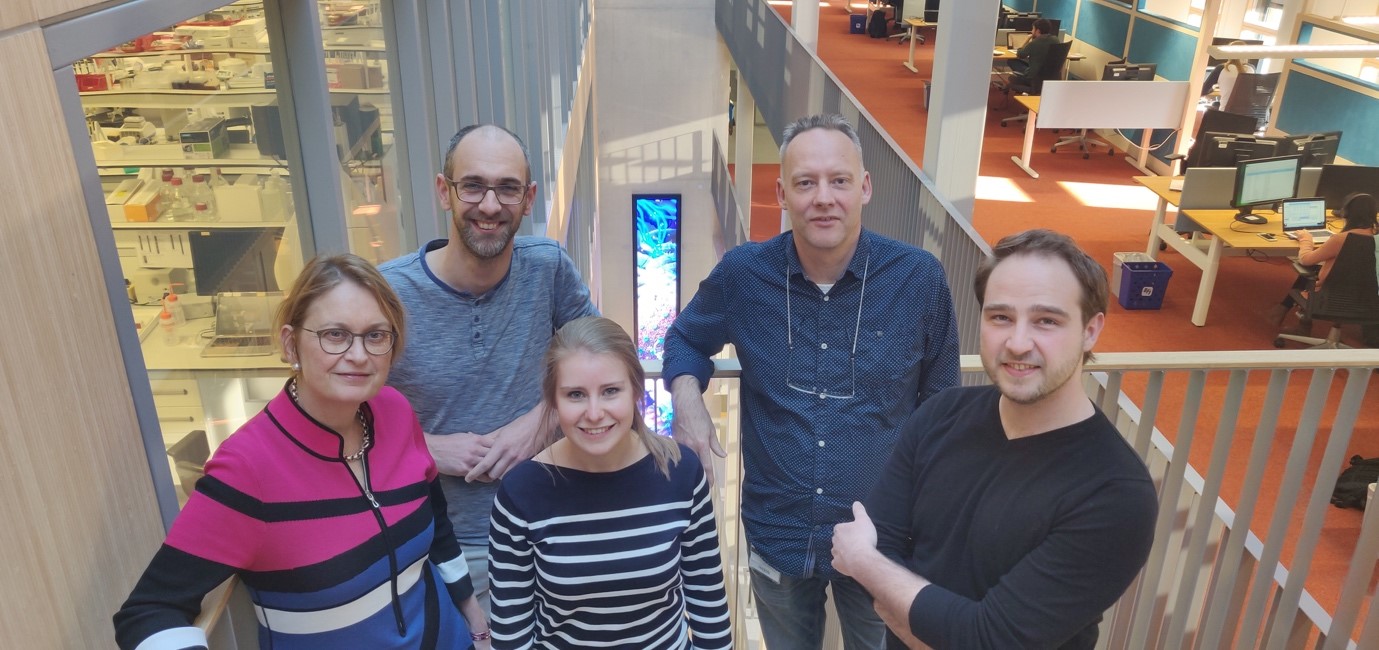
Gut-on-Chip

As part of the Netherlands Organ-on-Chip Initiative (NOCI), a national consortium working to develop and utilize organ-on-chip technology in biomedical research, we are developing Gut-on-Chip technology to study complex intestinal diseases, particularly celiac disease.
A gut-on-a-chip is a miniature version of the gut - the intestine - made from human gut-barrier cells placed into a 'chip', a small device approximately the size of a USB stick that contains a fluid channel. The gut-barrier cells are not directly derived from a human gut, which would involve invasive surgery to extract, but are instead made from induced pluripotent stem cells that we can generate from urine or blood in a non-invasive manner. These stem cells can be differentiated into gut-barrier cells by mimicking the development of the gut during embryonic development. In practice this means adding a cocktail of different growth factors to the cells every day for about 1.5 months. The gut barrier cells can then be placed into the chip, where they experience similar forces to those in our gut, for example peristaltic motions. Using this Gut-on-Chip we can perform experiments that allow us to study diseases outside of the human body, but in a system that closely resembles the human gut. We are currently developing these small mini-guts using cells from patients with celiac disease, so that we can study the effect of genetics on functioning of the gut in our laboratory. We will first investigate whether the gut barrier is intact in patients with celiac disease and later investigate the interaction of this barrier with microbiome and cells of the immune system.
If you want to stay up-to-date on our progress you can ask us directly and follow us on twitter @nociorganonchip.
| Last modified: | 11 March 2025 2.35 p.m. |
